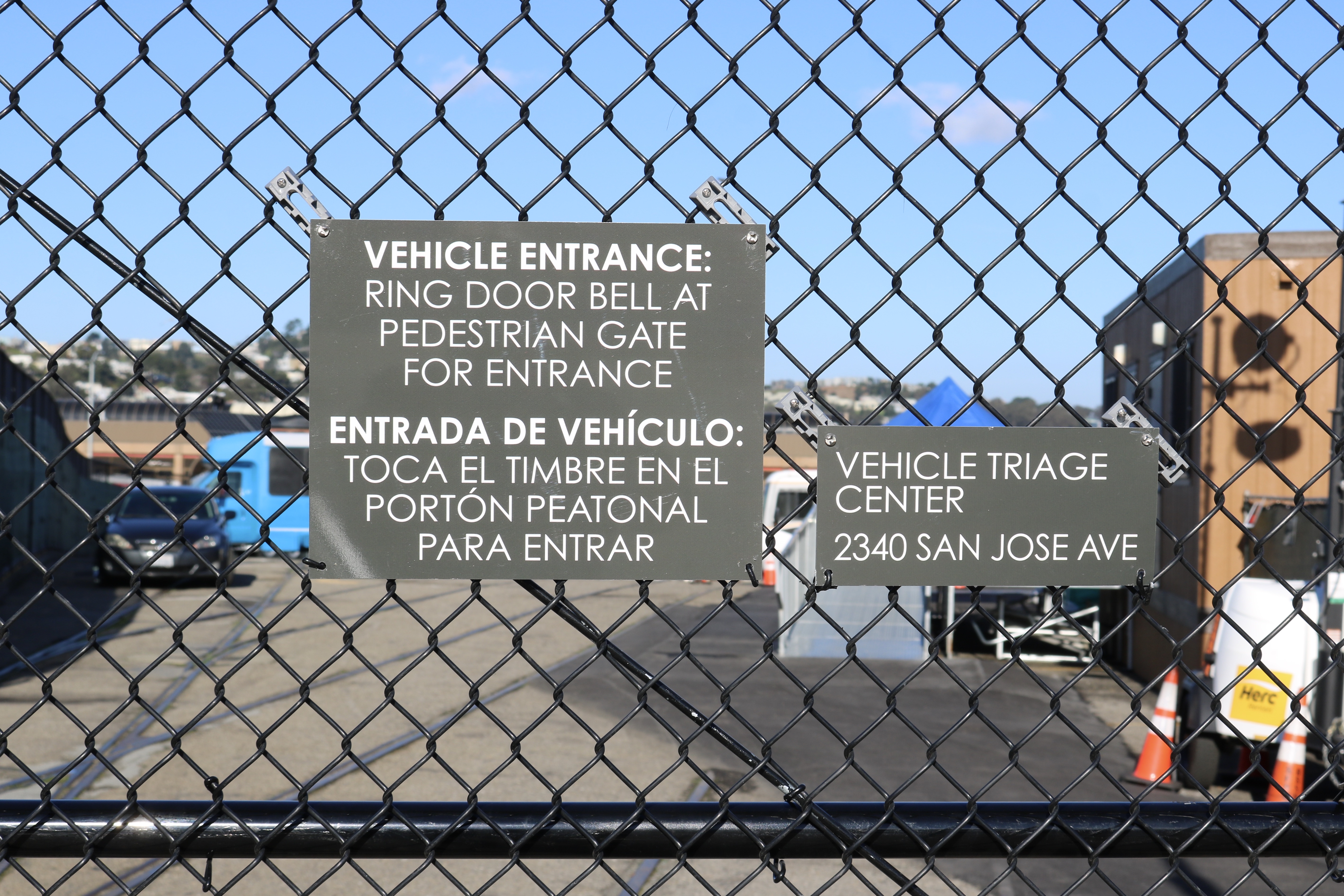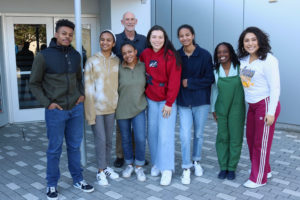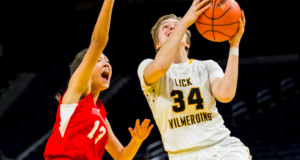San Francisco opened a “vehicle triage center” on Geneva Avenue this December. The site is the first legally-sanctioned place in San Francisco for unhoused people to sleep in their cars.
482 Geneva Avenue is a midsize parking lot on the corner of Geneva and San Jose. Adjacent to the Balboa Park BART station, many Lick-Wilmerding students walk past the gated lot on their way to school every day.
“We saw a big uptick of people living in RV’s in our district, and then I started to notice that this was something that was a trend happening all over the Bay Area,” said San Francisco District 11 Supervisor Ahsha Safai, who co-created the legislation for the vehicle triage program.
Before creating the site, referred to as the “upper yard,” city workers would routinely post signs prohibiting vehicles that surpassed a certain height and length from parking between the hours of 12 and 6 am. These signs had been Safai’s response to the rise in RV living in his district, and they had essentially made overnight RV parking illegal.
“All that does is move people from block to block, and you’re not coming up with a long term solution,” Safai said of the signage.
The call for change in policy came when SFMTA refused to comply with orders to put up more signs. Safai said SFMTA asked the city to come up with “a more thoughtful policy.”
Safai co-created the legislation for the upper yard site in collaboration with former Supervisor Valerie Brown. The two brought the legislation to Mayor London Breed, who granted money to create a pilot program at the site.
The upper yard is located between units of affordable housing. Urban Alchemy, a San Francisco homeless-services non-profit, purchased the site. The organization works in conjunction with city services including the Department of Social Services, the Department of Mental Health, and the Department of Public Health. The triage center offers on-site services such as bathrooms, two 24 hour security guards, a mobile shower service that comes in several times a week, and an office used for referrals to services such as job-training and transitional housing programs. The lot contains 33 parking spots and is solar powered.
While some nearby residents were in favor of the creation of a vehicle triage center in their neighborhood, many were opposed. The district held a community meeting in an effort to win over neighborhood support.
Nearby residents’ main concern was that the upper yard would become a permanent parking space. Safai said he didn’t want the upper yard to become a magnet for people to “park and wait to get in.”
To gain admission to the facility and its services, one needs a deferral from the city’s homelessnes outreach team. Individuals are screened to confirm that they are viable candidates for the site. Clients can park in the upper yard for up to 90 days and longer if necessary at the discretion of the Director of the Department of Homeless Services.
The upper yard is a pilot program, meaning that the site in District 11 is being used as an example for potential sites in other districts.
In the two months since its initiation, Safai said the upper yard has been very successful.
“I am proud of the entire legislation,” Safai said in January. “And we are going to use this as an opportunity to talk about expanding [the services] into other areas of the city.”






